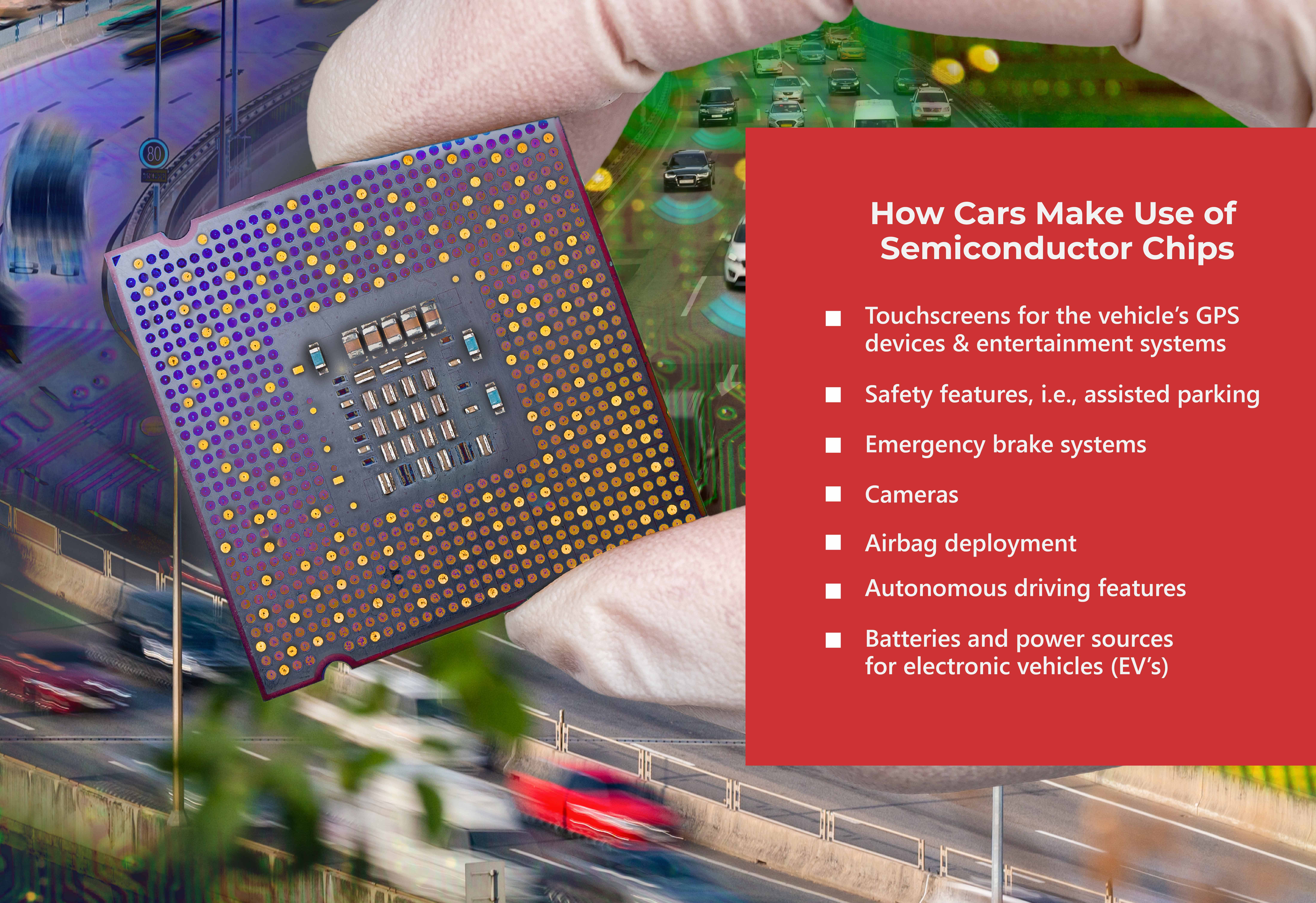From Automakers to Chip Makers: Will DIY Save the OEMs?

When the chips are down, these automakers keep on rollin’.
A Brief History of the Chip Shortage
Semiconductor chip shortages have been happening since the late 1990s, but new reasons keep coming up and making it worse for the automotive industry. When the global pandemic hit in 2020, the demand for new vehicles declined sharply as most people were forced to stay at home.
Big car companies such as Ford Motor, General Motors, and Volkswagen responded by temporarily pausing production of new cars and canceling orders for chips for the remainder of the year.
However, as nations started bouncing back towards the end of 2020, the demand for new cars spiked, leaving chip suppliers scrambling to cover gigantic shortfalls.

(Also read: Dashboards Go Digital: Innovations in Digital Cockpits)
Scrambling for Semiconductors
The more that vehicles get more advanced and digital, the more semiconductor chips are required to make these. It would be impossible to ask carmakers not to make advancements on the vehicles they make and simply go back to manufacturing cars from older designs without any of the hi-tech devices that power modern cars. Nobody will buy these because our needs have evolved dramatically from ten or even five years ago. Carmakers, or OEMs as they are known in the industry all have to keep up with their consumers’ ever-changing need for speed.
Experts have different opinions when it comes to how long the semiconductor shortage will last. Leading research firms such as J.P. Morgan say that 2022 looks optimistic for PC and smartphone makers, but the automotive industry, which usually finds itself on the lowest priority for chip manufacturers, will have to hang in there a while longer.
Rather than wait it out and lose business, carmakers are choosing to step up and see how they can solve their own problem by making the chips themselves.
When the Chips are Down, the Carmakers Step Up
Which of the large OEMs have chosen to make their own chips?
Tesla has been ahead of the charge way before the 2020 pandemic caused the latest shortage wave. The company has been making its own chips since 2016. In fact, unlike other carmakers who have suffered a loss in sales in 2020, Tesla orders hit their highest surge in the company’s history at 45%. In its effort to push innovation further, Tesla looked into Silicon Carbide as a material to produce their EV’s semiconductors.
(Read also: Silicon Carbide: Powering the Future of EVs)
Other carmakers have followed suit, re-evaluating their supply chains to mitigate the semiconductor chip shortage and save their futures. While these carmakers are all in agreement about making their own chips, the difference lies in how each company chooses to go forward with plans.
Hot on Tela’s heels in the EU is Volkswagen, whose CEO Herber Diess has said that Volkswagen will be designing and developing their own chips for automated cars.
Meanwhile, in the U.S., General Motors Co. has reportedly been looking into co-developing semiconductors with various manufacturers from around the globe such as the American company Qualcomm Inc.., Taiwan Semiconductor Manufacturing Co., Renesas Electronics Corp. from Japan, and Infineon Technologies Ag from Germany.
Ford Motor, on the other hand, has reportedly partnered up with a semiconductor manufacturing company called GlobalFoundries and is exploring not just making the chips for their own company, but other carmakers as well.
South Korea’s Hyundai has joined the mix. According to Seoul Economy Daily, the company has plans of developing its own chips for at least one new vehicle model.
Will DIY Do The Trick?
The move by carmakers to take matters into their own hands is understandable, given that things, as they stand, are still very much uncertain for the automotive industry.
Those in the industry are asking: is this wise? What will this mean for many of these companies?
Jessica Caldwell, a high-level executive from the car-shopping site Edmunds shared her expert opinion with Marketplace in an interview. According to her, carmakers making long-term strategies based on a phenomenon happening currently seems rather “curious” as circumstances may change at any time. On the other hand, she sees this as a great opportunity for carmakers to open profit centers, especially if these companies go into other partnerships and supply chips to other carmakers, as in Ford Motor’s vision for itself.
Another major issue circling the DIY solution is that chips take a lot of time and money to make. The chips that are required to make the gadgetry that makes modern vehicles possible are highly complex and specialized, needing specific quality testing activities and equipment that OEMs do not have and will require separate laboratories to perform. This is according to Jon M. Quigley, a member of the Society of Automotive Engineers.
U.S. President Joe Biden has reportedly sought $37 billion in funding to create laws meant to revitalize and incentivize chip manufacturing in the United States, in hopes that this will help the automotive industry.
In addition to this, the U.S. government has been working with large automobile companies such as Ford Motors and General Motors as well as tech giant Apple Inc. to come up with solutions to the shortage.
Only time will tell if carmakers’ various partnerships with chipmakers alleviate the situation currently being faced, but based on what we’re seeing and how it’s being done, it looks like the road ahead for the automotive industry is going to be a rocky one.
As one of the Top 21 EMS companies in the world, IMI has over 40 years of experience in providing electronics manufacturing and technology solutions.
We are ready to support your business on a global scale.
Our proven technical expertise, worldwide reach, and vast experience in high-growth and emerging markets make us the ideal global manufacturing solutions partner.
Let's work together to build our future today.
Other Blog




